Complex ballots challenge Swiss electorate
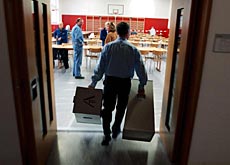
Swiss voters have gone to the polls this weekend to decide on whether to allow stem-cell research on surplus human embryos.
Low turnout could mark the ballot which also includes complex reforms of the federal system and tax issues.
The new legislation would permit research on stem cells from surplus human embryos under certain conditions.
The production of stem cells would be limited to embryos not older than seven days. Therapeutic cloning and the trade in embryos would remain banned along with research on the embryos themselves.
Parliament approved the law in 2003, but an alliance of religious and pro-life groups as well as leftwing opponents of gene technology have challenged the legislation to a nationwide vote.
Controversy
The government, the four main political parties and the business community have come out officially in favour of stem-cell research despite prominent dissenting voices.
Opponents argue that the law oversteps ethical boundaries, while its supporters say it is crucial to ensuring that Switzerland’s research community remains among the best in the world.
Opinion polls show a slight lead for those in favour of stem-cell research, who have pointed out its importance for finding medical cures.
The Swiss stem-cell law falls between the liberal regulations in Britain and Austria’s restrictive legislation.
Three years ago Switzerland’s National Science Foundation gave the green light for research on stem cells imported from abroad.
Reform and tax
Other issues coming to a vote are a wide-ranging reform of the federal system, and the renewal of a mandate for the federal government to impose taxes.
The reform plans are aimed at redressing the balance of power between the federal government and the 26 cantons. They are also designed to redistribute responsibilities and funding in about 30 policy areas.
Supporters say reform is needed to close the gap between richer and poorer regions, and to make the system of subsidies more transparent.
Voters are also having the final say on a proposal to renew the mandate for the federal government to levy taxes, including Value Added Tax, until 2020.
Under Switzerland’s three-tier fiscal system, the local and cantonal authorities as well as the federal government have a right to impose taxes.
Turnout
Analysts say most of the campaigning ahead of the votes has been rather low-key.
“It appears that hardly any interest groups were willing to stage costly campaigns,” said Georg Lutz, a political scientist at Bern University.
He added that the issues at stake were complex and provoked a wide range of arguments.
As a result Lutz expects voter turnout to be below the average 40 per cent level.
“Previous ballots have shown that voters abstain and stay at home when an issue is too complicated,” said Lutz.
swissinfo, Urs Geiser
Voters are deciding on research on embryonic stem cells, reform of the federal system and the renewal of the mandate for federal taxes.
Latest opinion polls show a slight lead for supporters of stem-cell research and of the federal reform.
Analysts expect a lower-than-average voter turnout because of the complexity of the issues at stake.

In compliance with the JTI standards
More: SWI swissinfo.ch certified by the Journalism Trust Initiative

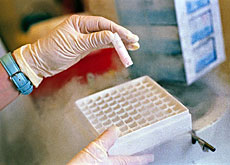
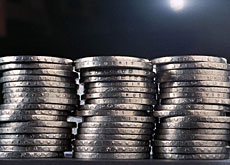
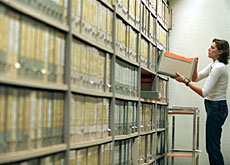
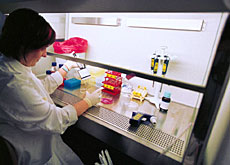
You can find an overview of ongoing debates with our journalists here. Please join us!
If you want to start a conversation about a topic raised in this article or want to report factual errors, email us at english@swissinfo.ch.